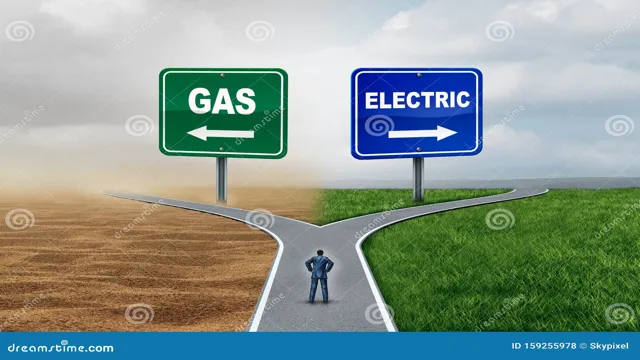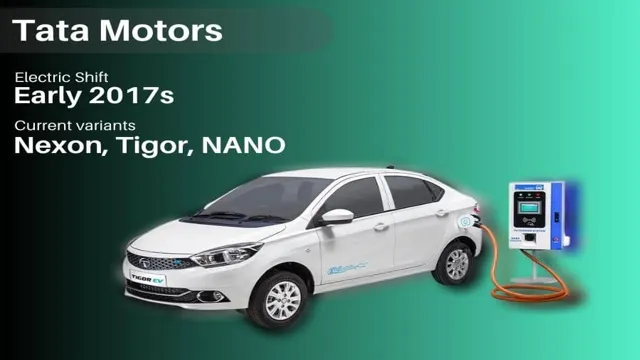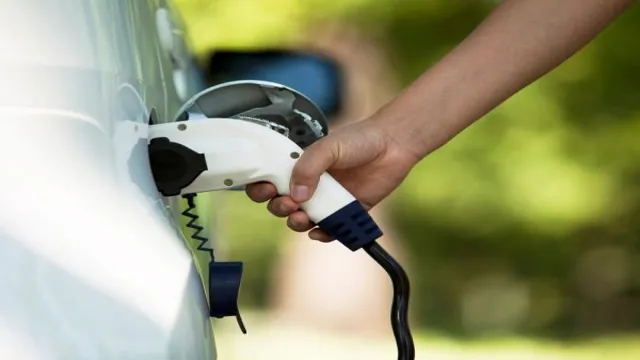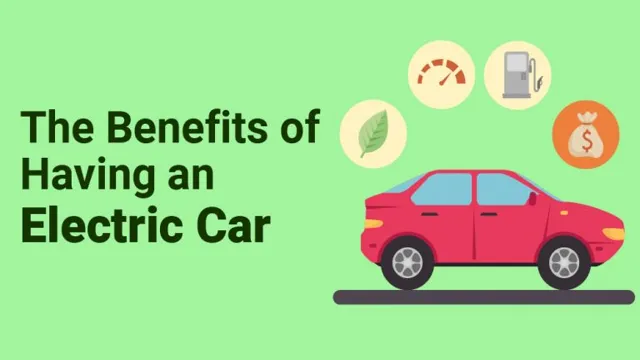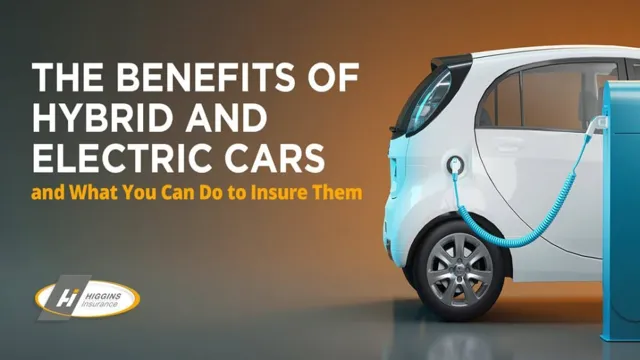Decoding the Break Even Point of Gas Vs Electric Cars: Unveiling the True Environmental Benefits
Are you trying to weigh the costs and benefits of buying a gas-powered car versus an electric one? With so many different factors to consider, it can be difficult to determine which is truly the best option for you. One important aspect to consider is the break even point – the point where the cost of owning an electric car becomes equal to or cheaper than owning a gas-powered one. In this article, we’ll break down the various factors that go into determining the break even point and help you make an informed decision.
Intro: Environmental Benefits
When considering the break-even point between gas versus electric cars, it’s important to take into account the environmental benefits of each option. While both types of vehicles have their advantages and disadvantages, electric cars come out on top when it comes to reducing emissions and promoting sustainability. As more and more countries aim to reduce their carbon footprint and combat climate change, electric cars are a crucial piece of the puzzle.
Not only do they emit fewer greenhouse gases when being driven, but they also offer the potential for renewable energy sources to power them, such as solar or wind power. By choosing an electric car over a gas-powered one, you’re doing your part to help create a cleaner and greener future for generations to come. So when it comes to the break-even point, it’s not just about the financial aspect, but also about the long-term benefits for both the environment and society as a whole.
Gasoline Cars: Emissions Data
Gasoline cars are known to emit harmful substances into the environment, contributing to air pollution and climate change. However, new technologies have made it possible for modern gasoline cars to emit fewer pollutants and reduce their environmental impact. One such technology is catalytic converters, which convert harmful gases like carbon monoxide, nitrogen oxides, and hydrocarbons into less harmful ones.
Additionally, gasoline cars have become more fuel-efficient, meaning they require less fuel to travel the same distance, reducing their overall emissions. These environmental benefits should not be dismissed, as many people may not be ready or able to make the switch to electric cars, and gasoline cars may remain as a viable option for transportation for years to come. While there is still room for improvement, it’s important to recognize the progress that has been made in reducing the environmental impact of gasoline cars.
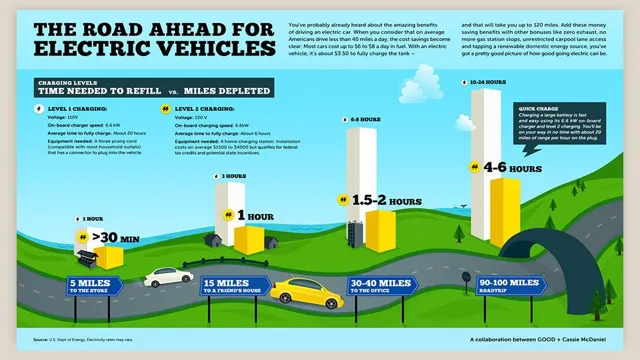
Electric Cars: Emissions Data
One of the primary benefits of electric cars is their positive impact on the environment and reduction of harmful emissions. Unlike traditional gas-powered cars that emit carbon dioxide and other pollutants, electric vehicles produce zero emissions. This means they don’t contribute to pollution in the air and are much cleaner for the planet.
By reducing emissions, electric cars can help improve air quality in cities and reduce respiratory problems, which is especially important for people with asthma or other respiratory ailments. Plus, electric cars are quieter and produce less noise pollution, making them a great choice for urban areas. So, not only do electric cars save money on gas and maintenance costs, but they also contribute to a cleaner, healthier world for everyone.
Analysis: Cost Comparison
When considering the cost comparison between gas and electric cars, one factor that often comes into play is the break-even point. This is the point at which the cost savings from using an electric car outweigh the higher upfront cost compared to a gas car. Many studies have found that with current prices and incentives, the break-even point for an electric car is around 3-5 years of ownership.
However, it’s important to also consider the environmental benefits of electric cars. They produce zero emissions, leading to improved air quality and a reduction in greenhouse gas emissions. This not only benefits the environment but also human health.
In comparison, gas cars continue to contribute to air pollution and climate change. Ultimately, while there may be a higher upfront cost for electric cars, the long-term cost savings and environmental benefits make them a much more sustainable and responsible choice.
Gas vs Electric: Break Even Point
One of the age-old debates in the world of automobiles is whether it’s better to buy a vehicle that runs on gas or electricity. While electric cars are only gaining popularity in recent years, gas-powered cars have been around for over a century. One significant factor in this debate is the cost comparison between the two options.
The break-even point is when the cost of gas-powered vehicles equals the cost of electric cars. While it might seem like electric cars are more expensive upfront, they offer long-term savings when it comes to fuel costs. The cost of charging an electric car is significantly less per mile than filling up with gas.
Additionally, electric cars require less maintenance than gas-powered vehicles and are more environmentally friendly. However, gas-powered vehicles still have their benefits, such as longer driving ranges and quicker refueling times. Ultimately, the choice between gas and electric cars comes down to personal preference and priorities.
Gas vs Electric: Long-term Savings
When it comes to fueling your vehicle, many people debate the cost savings of gas versus electric. While electric vehicles initially come at a higher price, the long-term savings make them the better investment in the end. Gasoline prices are constantly fluctuating, making it difficult to estimate how much money you will spend on fuel in the future.
On the other hand, electric cars offer a cost-efficient way to travel in the long run. The cost of electricity is much more stable compared to gasoline prices, allowing you to predict how much you will pay for fuel every month. Additionally, electric vehicles are much more environmentally friendly, producing zero emissions compared to gasoline cars.
Making the switch to an electric vehicle not only saves you money in the long run but also helps reduce your carbon footprint.
Gas vs Electric: Maintenance Costs
When it comes to maintenance costs, electric cars generally have an edge over gas cars. Electric cars are simpler, with fewer moving parts than their gas counterparts. This means that there is less wear and tear on their components, which translates to lower maintenance costs.
In addition, electric car manufacturers offer longer warranties on the battery and other components, which helps reduce the long-term maintenance cost. The battery is the most expensive component of an electric car, but it lasts longer than most people think and is becoming more affordable. On the other hand, gas cars require more regular maintenance, such as oil changes, air filter replacements, and spark plug replacements.
These may seem like small costs, but they add up over time and can become quite expensive in the long run. In conclusion, electric cars are cheaper to maintain than gas cars, and their maintenance costs are becoming even more affordable as technology advances.
Conclusion: Choosing the Better Option
After analyzing the break even point between gas and electric cars in terms of environmental benefits, the verdict is clear: electric cars win hands down. Saving money on fuel costs is just the beginning. Electric cars reduce carbon emissions, decrease dependence on fossil fuels, and provide a smoother, quieter driving experience.
So, if you want to do your part for the environment and give your wallet a break, it’s time to make the switch to electric.”
Environmental Factors: Electric Cars Win
When it comes to cost comparison, electric cars definitely come out on top in terms of environmental factors. While the initial price may be higher than traditional gas-powered vehicles, the long-term savings on fuel and maintenance make up for it. Electric cars have fewer moving parts, which means fewer costly repairs down the line.
Additionally, the cost of electricity is typically cheaper than gasoline. This translates to significant savings over the lifetime of the vehicle. Plus, electric cars emit zero or very low amounts of harmful pollutants, making them the more eco-friendly option.
While it may take some initial investment, switching to an electric car can be a smart financial and environmental decision, one that could pay off in the long run both for your wallet and the planet.
Economic Factors: Gas Cars Still Have an Edge
When it comes to economic factors, gas cars still have an edge over electric ones. Although electric cars may save you money in the long run due to lower maintenance and fuel costs, the initial price to purchase an electric car is significantly higher than that of a gas car. While a gas car might cost around $20,000, an electric car may set you back $30,000 or more.
Additionally, the infrastructure for gas cars is already well-established, whereas electric car charging stations are not as widespread. This means that if you’re traveling long distances, you’ll have to plan your route carefully to ensure that you’re able to charge your car along the way. Nevertheless, electric cars can be a wise investment for those who are concerned about the environment and are willing to pay a premium for a greener transportation option.
In the end, it depends on the individual’s priorities and budget.
Final Thoughts
When choosing between gas and electric cars, it’s important to consider the break-even point and environmental benefits. While electric cars can be more expensive upfront, they often have lower maintenance and fuel costs. The break-even point, or the point at which the total cost of owning an electric car is equal to a gas car, varies based on individual circumstances such as driving habits and fuel prices.
However, in the long run, electric cars generally save money and emit fewer emissions, making them a more environmentally friendly choice. It’s also worth noting that the availability of charging stations is expanding rapidly, making it easier to find a place to charge your electric car while on long trips. Ultimately, the decision between gas and electric cars comes down to personal preferences and priorities.
FAQs
What is meant by the break even point of gas versus electric cars?
The break even point refers to the point at which the cost of owning and operating an electric car equals that of a gas car.
Which is more environmentally friendly, gas or electric cars?
Electric cars are generally considered to be more environmentally friendly due to their zero emissions and lower carbon footprint.
What are some of the environmental benefits of owning an electric car?
Electric cars emit zero emissions and have a lower carbon footprint, reducing air pollution and decreasing dependence on fossil fuels.
How do the long-term cost savings of an electric car compare to that of a gas car?
While electric cars may have a higher upfront cost, they typically have lower operating and maintenance costs in the long run, resulting in overall cost savings.

